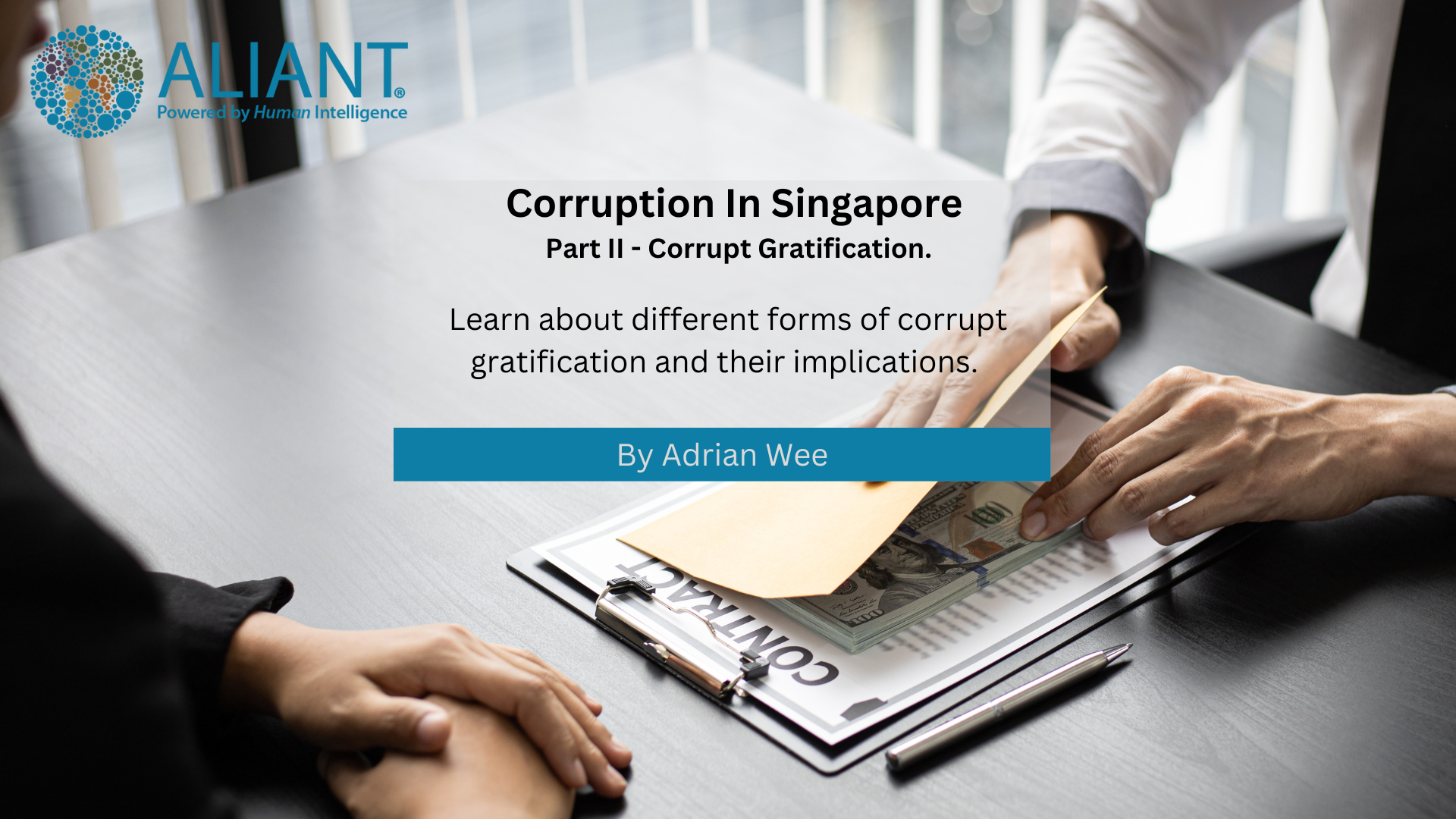Corruption in Singapore Part II – Corrupt Gratification.
In Part I of the Corruption in Singapore series, I described how corruption was an attempt to influence the behaviour of someone else by giving or promising to give something (gratification).
My English teacher used to tell me not to define a word by using the same word in the definition. Evidently, the architects of Singapore’s anti-corruption framework had a different English teacher.
The offence of corruption requires that the giving of the gratification be of a corrupt nature (i.e. that the gratification was corrupt). Put it all together and our working definition of corruption is the giving of corrupt gratification for a corrupt purpose. Precious little value-added, I know.
Perhaps a more useful explanation can be found in examples of corrupt gratification and the purposes for which the gratification is given.
Corrupt Gratification – Forms and Examples:
Corrupt gratification can take many forms. By far the most common form is the payment of money, usually cash, from a giver to a recipient. However, these payments need not be made directly to the receiver. In Wong Chee Meng, payments were made to Wong’s mistress at Wong’s behest.
Other forms of material benefits include payments for entertainment and other expenses, as well as discounts for goods and services. In Wong Chee Meng, the accused received a discount off the purchase price of a car from a business associate. His business associates also paid for Wong’s considerable KTV and other entertainment expenses.
Corrupt gratification does not necessarily need to confer permanent and lasting benefits. In Marzuki bin Ahmad, the mere giving of a loan was sufficient to constitute corrupt gratification, even if the loan was subsequently repaid in full.
In addition, corrupt gratification may take the form of non-material benefits. University professor Tey Tsun Hang was convicted at first instance of accepting sex from a student in exchange for showing academic favour. Tey was ultimately acquitted on the facts after an appeal.
Understanding Corrupt Gratification in Singapore:
It should be noted that, for gratification to be given corruptly, it is not necessary for the giver to have intended to procure a specific benefit. In Wong Chee Meng, the Court held that it was sufficient for the gratification to have been given for the purposes of “cultivating” the receiver and it was not necessary for the giver, by the giving of the gratification, to intend to receive any specific reciprocal benefit.
Share Your Views:
What are your thoughts on Singapore’s anti-corruption regime and, in particular, how corrupt gratification is defined? Share your views and your own jurisdiction’s approach in the comments.
Stay Tuned:
Check back often for the next article in this series on corruption in Singapore. In the meantime, if you have any queries, please get in touch. We would love to hear from you.
FOLLOW US ON LINKEDIN
SEE MORE ALIANT INSIGHTS



